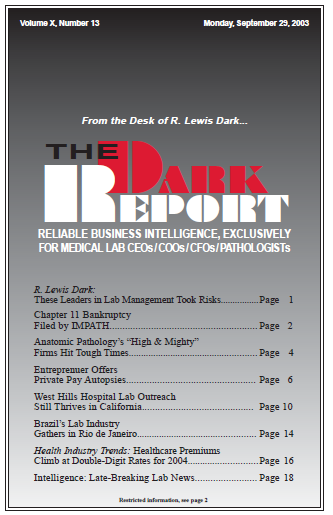There was cautious optimism among lab industry leaders lobbying Congress to stop the proposed 20% co- payment for Part B laboratory testing services. It seems that, over the summer break, Iowa Senator Charles Grassley got a lesson in grass roots lobbying. At a number of town meetings, irate seniors showed up and asked pointed questions …
“September 29, 2003 Intelligence: Late Breaking Lab News” Read More »
To access this post, you must purchase The Dark Report.


